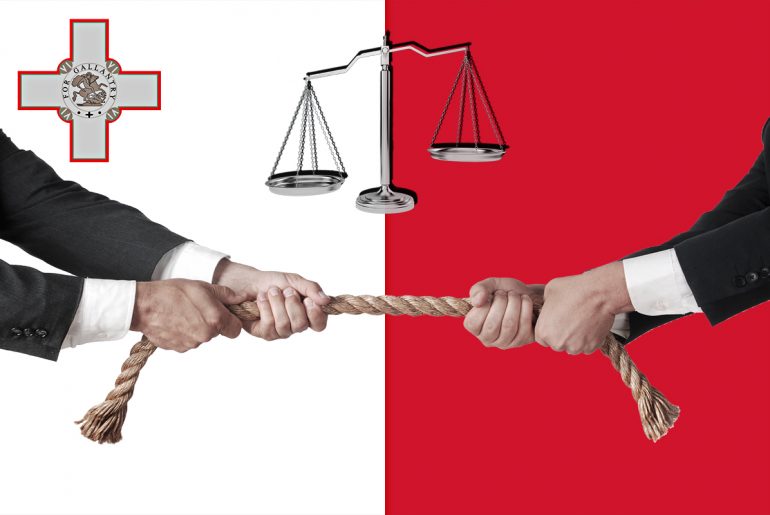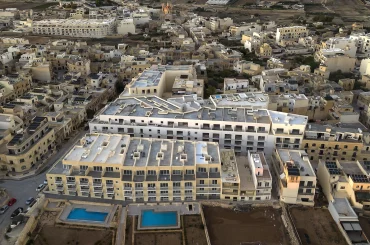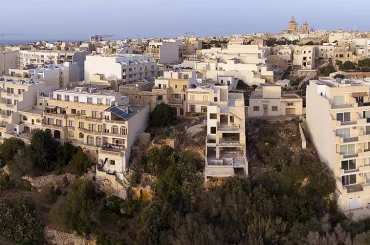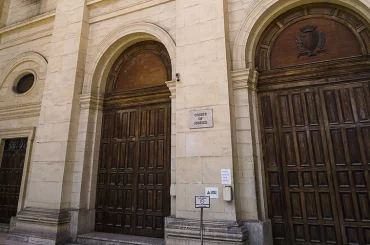The legal changes that the government is intent on pushing through to enable it to appoint its choice of Standards Commissioner, who is tasked with investigating ethics breaches by MPs, is a law that the government initially put in parliament in late Spring of 2020.
But the government at the time was fixated on getting six laws through parliament in a last-ditch bid to avert greylisting by the Financial Action Task Force (FATF), and it yielded to the PN’s demands. The six bills were then made law before parliament went into summer recess on 29 July 2020.
This proves the closedness of the political system and the fact that common vested interests bind the majority and the opposition together.
Venice Commission
The resuscitated proposal is simple: that positions of the Chief Justice, Ombudsman, Standards Commissioner, and chief of anti-corruption commissioner are appointed with a two-thirds majority vote and, if a candidate fails to garner two-thirds of MPs’ votes after two rounds of votes, then that candidate would be elected with a simple majority.
The problem with this law is obvious: the government’s nominee would get appointed in any case if not on the first and second vote, then on the third vote. It could make the first and second vote a charade – and a government acting in bad faith.
This has been dubbed the ‘anti-deadlock’ mechanism and, back in 2020, the government was under pressure to implement the rule-of-law recommendations of the Council of Europe’s Venice Commission.

The Venice Commission had recommended a different anti-deadlock mechanism than the one put into law in the summer of 2020, and different still from the one initially proposed by the government, which the government has now cynically and opportunistically resuscitated.
The Venice Commission had recommended that if there was no agreement between the two political parties on these appointees – who serve key roles in rule of law institutions or entities – then appointees would be chosen by the three judges sitting in the Constitutional Court. These are the country’s three most senior judges.
Yet the Justice Minister of the time, Edward Zammit Lewis, insisted in a meeting with the Venice Commission having provisions that solely allow the political parties make the appointments. He argued that the two main political parties would be able to agree on appointees, or coalesce around an appointee, to achieve the ‘qualified majority’ (in Malta referred to as the two-thirds parliamentary majority).
The Justice Minister drew attention to the fact that, a few months earlier, the political parties had coalesced around the appointment of the Chief Justice – appointing the widely-respected Mark Chetchuti by agreement between the parties.
The Venice Commission expressed skepticism of such mechanism. However, while it acquiesced to the government’s insistence with regards to some of the positions, it tried to hold firm at least when it came to the appointment of the Chief Justice.
In its opinion 19 June 2020, the Venice Commission wrote: “Any requirement of a qualified majority for an election to high office risks ending in deadlock. Even if the political parties in Malta should be commended that they seem able to reach agreement on such elections, it cannot be excluded that such a deadlock could arise in the future. The Chief Justice has such an important position that this situation must be avoided. An extension of the mandate of the incumbent Chief Justice can be envisaged, but this cannot be a solution if s/he can no longer exercise the office due to health reasons. A suitable anti-deadlock mechanism might be that the Chief Justice be elected by the judges of the Supreme Court if there is a prolonged stalemate in Parliament for the election by a qualified majority in Parliament.”

The government at the time desperately wanted to pass through these laws – due to the threat of greylisting by the FATF – and it needed the PN’s votes to clinch these constitutional changes. This created a willingness to compromise, and the PN used that susceptibility to get what it wanted from the bills in front of parliament: that these key officials would be elected via two-thirds majority.
And that’s how we ended up – despite the Venice Commission’s exhortations – with a system of key independent rule-of-law officials being elected by two-thirds majority, and no anti-deadlock mechanism built into that system. These provisions were made into law on 29 July 2020.
The Venice Commission was very critical of the haste, a move that it “regretted”. The government maintained that the laws “were implemented not because the Authorities were pressured into them, but because they strongly believed in them.” The government also pointed to the unanimity in parliament in its defense.
The Venice Commission then wrote in report published on 9 October 2020: “The current constitutional amendments are meant to have a profound and long-term impact in Malta and hence require wide consultations within Maltese society. Thus, the rushed process through Parliament comes not only as a surprise but also a disappointment… Confining the discourse to political parties in parliament without meaningful public consultation is akin to denying citizens their democratic entitlement to have a say in the shaping of the constitutional order.”
The Commission also sharply pointed out that unanimity on the laws in parliament “could also be interpreted as proving the closedness of the political system and the fact that common vested interests bind the majority and the opposition together.”

This is a common sentiment in the Council of Europe. A senior official told this website, speaking anonymously due to the sensitivity of his role, that when it comes to constitutional reform in Malta, “the Opposition is part of the problem, not part of the solution”.
The warnings of the Venice Commission have now come to pass as the political parties have been unable to agree on whom to appoint as Standards Commissioner, who would be investigating ethics breaches by MPs. Hence there is now a deadlock – but no anti-deadlock mechanism inbuilt into the law, as the Venice Commission had recommended.
Yet the government is now in a position of strength. Malta has been removed from the grey list, the EU’s attention has shifted away from rule-of-law problems in Malta, and the PN is in disarray.
In this context, the government now feels that it can get its way and amend the legal provisions so that it gets to appoint whoever it likes.
This means that the government – and the country – has now started regressing on even the very limited constitutional reforms it has carried out.
Both parties are to blame. The PN had a chance, in the summer of 2020, to insist on putting into the law the recommendations of the Venice Commission and truly create a system that would work because if the parties failed to agree, then it would be the most senior judges who would choose the appointees. But the PN was unable to rise above its partisan instinct, and wanted to have some of the spoils of power.
And the government, now that the exhortations of the Venice Commission have come to pass, has a chance to implement in full the Venice Commission recommendations: to put in law an anti-deadlock provision that, in the words of the Venice Commission, would be a mechanism that would “provide a strong incentive for both majority and opposition to come to an agreement.”
Such mechanism would be that if the parties fail to agree, then it would be a “neutral body” (as Venice Commission called it) that would make these appointees. Such neutral body could be the judges of the Constitutional Court, or other State grandees.
Yet the government, despite claiming that it wants to strengthen rule of law, seems intent on grabbing the opportunity to gather back some of the limited powers of appointments of key State figures that it had yielded two years ago. This means that the constitutional reform has not only stalled – the supposed Constitutional Convention that was intended to foster holistic reform seems to have been forgotten – the limited reform carried out in 2020 has now started regressing, or sliding backwards.
Featured Image: Part of the image, the part showing the tug-of-war hands, is credit/copyright to James Steidl - sotck.adobe.com
Sustain Analyses & Insight
Robustly researched and professionally delivered analyses and insight features on this website take much time, effort, and resources to produce. This website's donation setup itself is uniquely transparent, with targeted amounts – of just €50 every month for analyses – that allow tracking of donations in real time on the page. Contribute as little as €5.





